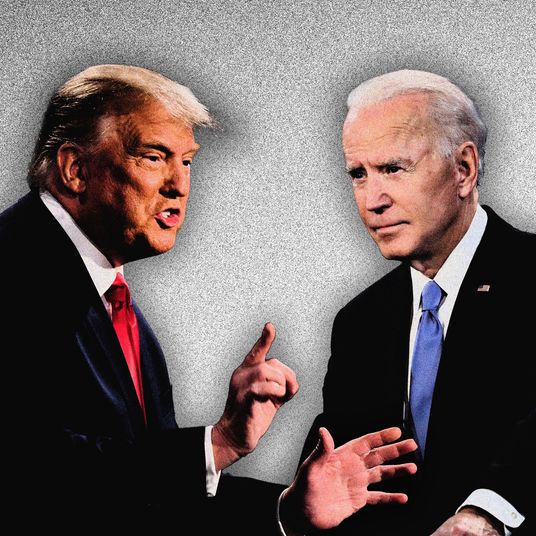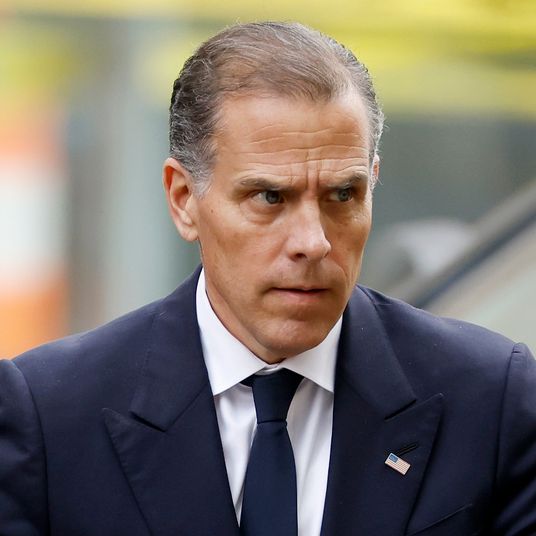Jamaal Bowman, the two-term congressman from Westchester County and the would-be future of the progressive left, is tired of the questions about George Latimer. “Yeah, I mean, I think it says something about his character, his integrity, and his actual leadership for the district. But enough of him. When are we going to talk about me?”
We’re at Salsa Picante, a Mexican restaurant in Port Chester, the heavily Latino village on the eastern reaches of the 16th congressional district. It’s late April, and Bowman, munching on chicken empanadas, is in a cheery mood, despite my prodding on Latimer. The night before, Summer Lee, a fellow progressive in Congress, had survived a furious primary challenge, and Bowman senses a pattern. “Salut!” he calls out. “I’m excited, hopefully, for the whole progressive movement to zero in on NY-16. Let’s get to work.”
The work is daunting. Bowman, less than two months from the June 25 primary, is one of the most endangered Democratic incumbents in America. This is in spite of — or because of — his charisma and budding celebrity, his ability to slash through the noise of 435 House members and command attention on a scale only one or two levels removed from Alexandria Ocasio-Cortez. A former public-school principal and self-described hip-hop head, Bowman marries her online savvy with a deft working-class touch. Burly and boisterous, with a knack for whipping up crowds, it is not hard to imagine him as a future presidential candidate, storming through South Carolina with a pack of reporters hanging on his every word.
But first he needs to win. And Latimer, the sitting Westchester County executive, has outraised him in the primary, thanks in part to the American Israel Public Affairs Committee (AIPAC) — the conservative, ardently pro-Israel political powerhouse that is seeking to crush the pro-Palestinian movement and the left itself. “They do not want any critique, they do not want any accountability, and so what it looks like to people in my district and around the country is that Israel can do whatever it wants even though, to people on the outside looking in, it looks completely wrong and horrible,” Bowman says of AIPAC. “One, it doesn’t represent all the Jews. It doesn’t represent all the Jews in Israel!”
“If Israel represents all the Jews,” Bowman continues, revving up now, “and if Israel is doing bad things without accountability, some idiot in the street just makes the connection that, Oh, Jews must be bad because Israel is bad. That’s fucking — excuse my language — that’s effing scary, man, and dangerous. And as we fight antisemitism, that has to include accountability for Israel.”
There was a time, not very long ago, when no member of Congress would speak this way. The Israeli government’s response that has starved out Gaza and killed thousands of civilians has catalyzed a new era though. Mass protests have flooded the streets and rocked college campuses, including two, Columbia and City College, that are only a short drive from Westchester. Bowman has been an AIPAC target for his support of conditioning military aid to Israel and his willingness to label the military campaign in Gaza a “genocide,” among other criticism lodged at the Jewish state. “AIPAC is one of the most powerful lobbies in America. Well you know what we have got to say to AIPAC? Bring it on,” he said at his campaign kickoff earlier this year. “AIPAC, bring it on. We are not scared of none of that. I’m from the streets of New York.”
In this deeply polarized moment, with Israel hawks reasserting themselves and the pro-Palestinian movement booming, few primaries in America offer a starker contrast between two candidates.
In one corner is Bowman, 48, the first Black congressman from Westchester who, just four years ago, unseated one of the staunchest Israel defenders in Congress, Eliot Engel. He immediately joined Ocaso-Cortez, Ilhan Omar, and Rashida Tlaib as one of the nation’s leading progressives. Latimer, meanwhile, is a 70-year-old county executive, ex-state senator, ex-assemblyman, and ex-Rye councilman. (He also had a career, as he likes to remind voters, in marketing and sales.) After October 7, AIPAC asked Latimer to run against Bowman. “I was a reluctant bride,” he told me in May, less than 24 hours after the NYPD had raided Columbia’s campus to arrest the protesters who had occupied Hamilton Hall.
I met Latimer at the Mount Vernon Metro North station, where he dutifully passed out palm cards (“Good morning, I’m George Latimer, I’m on the ballot”) to the few dreary commuters who ambled through. A couple lit up when they recognized him and one man, who was white, seemed to lament “identity politics” while promising his vote to Latimer. And it’s easy to make this race, as much as it’s become about Israel, about race: Latimer is the white ethnic, Irish and Italian, trying to depose a congressman who told me racism is the number-one issue facing the district and that he views himself, as the first Black man to hold this congressional seat, as a role model to Black youth throughout the area.
The district, which also ropes in a sliver of the northern Bronx including the sprawling and Bowman-friendly Co-op City, is both diverse and plenty segregated, with towns of immense wealth like Scarsdale lying within half-hour drives from working-class Yonkers. It’s about 40 percent white, 29 percent Hispanic, and 21 percent Black. Bowman’s trouble is that the white, well-heeled vote has soured on him, and Jews are expected to flock to Latimer. Jerry Skurnik, a Democratic consultant and data analyst, estimates that as much as 15 percent of the Democratic electorate who turn out in the primary might be Jewish. A conservative group, Westchester Unites, undertook an effort to register Jewish independents and Republicans as Democrats to vote in the primary, in an implicit effort to boost Latimer and undercut Bowman.
Both campaigns agree that Israel alone is not what motivates voters in Westchester and the Bronx, who are mostly consumed with the cost of living. Bowman, as a national figure, may be vulnerable to the very attacks that he once leveled against Engel: He’s too high-flown to care adequately about quotidian Westchester concerns. “He has a different brand of politics which appeals more so to getting clicks and likes and retweets and making headlines versus someone who has delivered,” said Tyrae Woodson-Samuels, the majority leader of the Westchester County Board of Legislators and a Latimer supporter.
Latimer is the rare insurgent who also profiles as an incumbent and can theoretically neutralize some of the attacks he’s taking from the left. If, on Israel, Latimer has held to the rightward fringe of his own party — he refused, in his conversation with me, to support Chuck Schumer’s call for Netanyahu to step aside — he is, on almost every other issue, a conventional, center-left Democrat. Until challenging Bowman, he regularly took the Working Families Party ballot line and earned plaudits from progressives for ousting Rob Astorino, his right-wing Republican predecessor as county executive.
“There are lots of people who really like both candidates,” says Evan Roth Smith, a Democratic pollster. “For many voters, the most loyal Democratic voters who do turn out in these kinds of primaries, it’s sort of like picking between mom and dad.”
Latimer, in that sense, was the dream recruit for AIPAC and Democratic Majority for Israel, another influential PAC that is spending heavily in Democratic primaries to bludgeon progressives. His knowledge of the district is encyclopedic and he shows up at every town board meeting, chicken dinner, and parade imaginable; he tells me he’s at train stations five days a week and bagel shops on weekends. He has the ability to cut into Bowman’s Black support, with endorsements from the Democratic committees in Yonkers and Mount Vernon. Bowman has won the backing of the influential health-care workers’ union 1199 SEIU, but Latimer has racked up his own support from civil-service, transit, and firefighters’ unions. In his Facebook musings on classic rock and the Knicks, he comes off as earnest and homespun, a Mr. Fix-It paterfamilias.
The cash, though, is anything but homespun. Latimer, never a prolific fundraiser before, banked $3 million at the end of March, double Bowman’s haul, and there are top donors who are either AIPAC-affiliated or cut checks to Donald Trump, including Alex Campos, Alex Dubitsky, and Stephen and Carolyn Lauro, who once hosted a Long Island fundraiser for Trump. Another donor is Daniel Loeb, the hedge-fund billionaire who accused Latimer’s old ally, the Black State Senate majority leader Andrea Stewart-Cousins, of doing “more damage to people of color than anyone who has ever donned a hood” because she wasn’t a supporter of charter schools, is another donor.
“You’re the reason why these guys are donating to me — because of what you said and done,” Latimer says of Bowman at the New Rochelle Diner after finishing at the Mount Vernon train stop. “I’m not even soliciting them. I have an event, they send checks. It’s not going to change what I do in Congress, Ross, I’m going to be a very progressive congressman on most policy issues.”
“It’s deeply disturbing that the Latimer campaign is being financed by many of the same people trying to elect Trump,” says Jasmine Gripper, the co-director of the Working Families Party’s New York chapter. “He’s accepting financing from people actively working against the Democratic Party.”
The real threat for Bowman is the super-PAC spending. AIPAC and DMFI together can blow past $20 million, if they choose, in attack ads and mail. (AIPAC did not respond to a request for comment.) And he offers them enough fodder, like a House censure for pulling a false fire alarm when Democrats were trying to stall a vote, which Bowman told me was an accident and Latimer believes was intentional. Blog posts Bowman wrote more than a decade ago appeared to give credence to 9/11 conspiracy theories and last week his YouTube page following conspiracy accounts became news. More recently, he was forced to apologize after lavishing praise on Norman Finkelstein, the acerbic anti-Israel scholar, at a panel discussion.
“Bowman has been one of the most anti-Israel members of the entire United States Congress,” charges Mark Mellman, the president of DMFI. “If he is defeated, it will send a strong message to the rest of the country.” Justice Democrats, the group that helped launch politicians like Bowman into orbit and is fighting desperately now to save him, would not disagree with that last part. “It’s absolutely a threat to the progressive movement and I think we have to be clear-eyed about what’s at stake here,” Usamah Andrabi, the group’s communications director, tells me. “The same people spending millions to try to elect Donald Trump and prevent Hakeem Jeffries from being speaker of the House are also spending millions to try to send George Latimer to Congress.”
Latimer, who once falsely accused Bowman of taking money “from Hamas,” argues the AIPAC cash has only arrived because he was already, long before the primary, genuinely pro-Israel. He also believes Bowman invited their wrath. “If Mike Tyson was in the room and I decided to go over to Mike Tyson and say, ‘Hey Mike Tyson, bring it on, yo,’ what do I think Mike Tyson might do to me? Whatever I used to be, I wouldn’t be the same person after he finished with me.”
Latimer has a fondness for analogies. He’s sitting with me and his campaign spokeswoman, and there are three paunchy, middle-aged men at a table near us, sipping coffee. “You shouldn’t return hostages as part of a negotiation. You should just return them. If someone came into this room, for the sake of argument — terrible analogy, I’m about to make — somebody came into this room and killed those three guys and me, wounded you, and kidnapped her, what right do they have to hold onto her? What right? This is not, ‘Let’s negotiate now.’ Four dead bodies, you’re wounded, and she’s kidnapped, and God only knows what they did to the people they kidnapped. Now let’s ceasefire and have a negotiation? That’s ridiculous.”
Latimer refuses to critique the Israeli military strategy in Gaza or declare he would, as a congressman, ask the U.S. government to condition military aid to Israel, as Biden has done in opposition to a potential Israel attack on Rafah. Unlike Bowman, he’s supportive of the police crackdowns on pro-Palestinian college protests and gladly associates himself with Israel hawks Ritchie Torres, John Fetterman, and Hakeem Jeffries, the AIPAC ally and House Democratic leader who has tempered his own outward pugilism since ascending to the top of his party. Jeffries has endorsed Bowman, a courtesy to an incumbent, but he has not tried to restrain AIPAC.
One irony of the primary is that Bowman, in 2021, broke with the Democratic Socialists of America over his support for funding the Iron Dome, an Israeli missile-defense system, and visiting Israel with J Street, the liberal (and much smaller) counter to AIPAC. J Street, still proudly Zionist, rescinded their endorsement earlier this year after Bowman began, like many activists, to speak of the Gaza death toll in terms of genocide.
Bowman tells me he is for, like almost every American politician, a two-state solution: a nation for the Jews and a nation for the Palestinians. Many of the most prominent activist groups in the nation today, like Within Our Lifetime and Jewish Voice for Peace, call for a single, multinational democratic state that wouldn’t necessarily guarantee a Jewish numerical majority — something that even most leftists in elected office shy away from.
I ask Bowman if Israel should always have a Jewish majority. Strikingly, unlike a vast majority of American politicians, he doesn’t answer immediately in the affirmative. “It might have been the day after or definitely the weekend after we won against Congressman Engel — who’s my guy, Peter Beinart, wrote a one-state piece that I thought was brilliant, I thought it was phenomenal,” he says. “Some of this stuff is, like, I’m not Jewish, man, you know? So I don’t want to be talking out of turn about Jewish issues. I’m also not Palestinian, right? It’s the same kind of deal but because my values are rooted in human rights and I know my district well, I have to comment on these things. And I do.”
“I want Palestinians to be free from occupation and apartheid and I want Jews to be safe — and Palestinians to be safe, of course. How do we do that?” he adds. “Jews should have a safe place to exist. What that looks like, the details of that, let’s figure that out. That is not Jews are safe, Palestinians are under occupation — those two things can’t co-exist anymore.”
It would be an exaggeration to say that the future of the progressive movement hinges on the outcome of this one primary. With or without Bowman, the Squad will be larger than it was four years ago, and the activists in the streets won’t be deterred if Latimer is sworn into Congress. Unconditional support for Israel is no longer a guarantee within the Democratic Party — look no further than Schumer applying the sort of pressure on the Netanyahu government that AIPAC loathes.
But a Bowman defeat would deprive the left of one of its most prominent voices at a moment when Establishment forces have regrouped from some of their losses over the last decade. The prospect of this not only makes AIPAC giddy but thrills moderate Democrats who are weary of the media attention and influence the Squad perpetually commands. The fear, for progressives, is that this primary could offer an obvious roadmap for the future: hunt out popular — or possibly venal — local politicians who are willing to target leftists and promise them a bounty of campaign cash and super-PAC spending if they take the plunge. Some more just might.

























